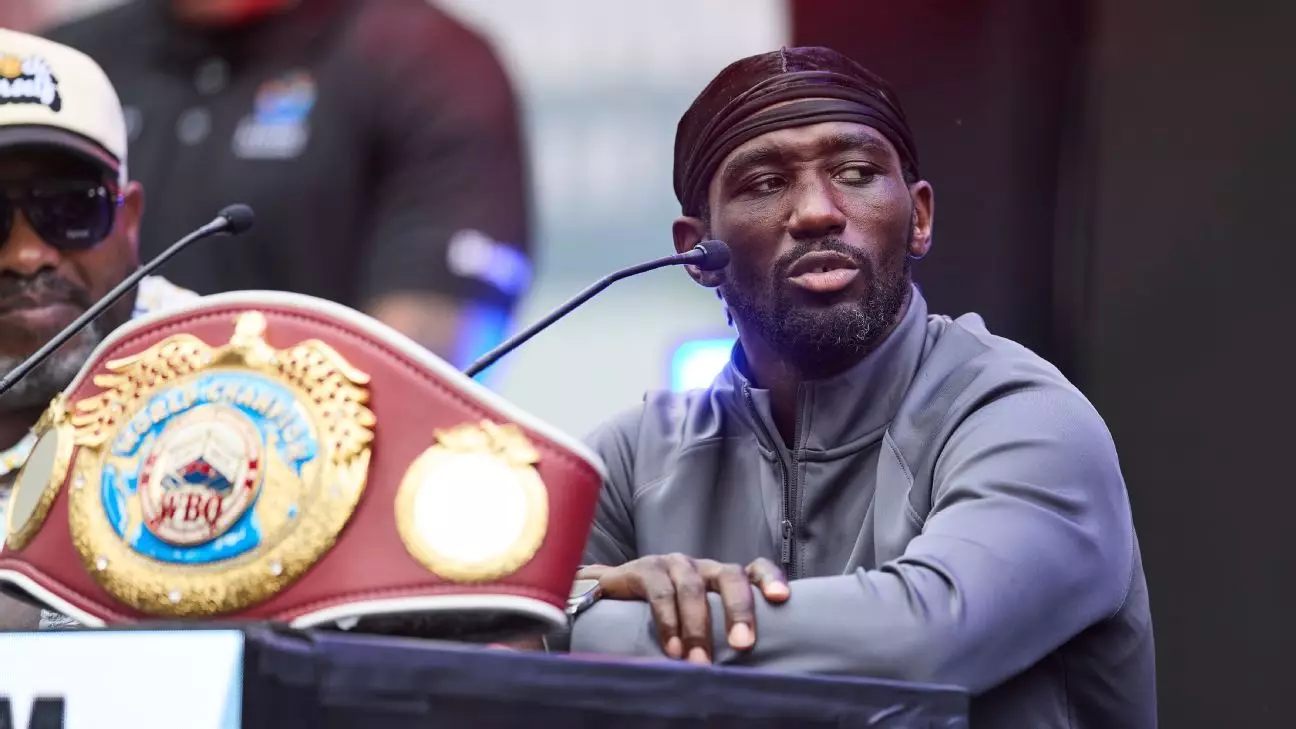In the ever-evolving landscape of combat sports, the question of crossover fights looms large, with personalities from boxing and mixed martial arts often seeking to challenge the boundaries of their respective disciplines. Recently, boxing sensation Terence Crawford firmly positioned himself within this debate by rejecting a lucrative offer to face UFC superstar Conor McGregor in a hybrid format that would include one boxing match and one mixed martial arts bout. This decision illuminates deeper issues surrounding the integrity of sports, athlete safety, and the allure of financial incentives.
The intriguing proposal that sparked this conversation originated from Turki Alalshikh, the chairman of Saudi Arabia’s General Entertainment Authority. This ambitious offer entailed a two-fight deal, promising exceptional financial returns that reportedly could amount to “hundreds of millions.” The proposition saw McGregor enthusiastically embracing the chance, yet Crawford exhibited a starkly different perspective, and his rationale underscores broader considerations within combat sports.
During discussions shared through various media platforms, Crawford emphasized his disinterest in participating in an MMA fight. “I’m not getting in no f—ing Octagon with you,” he asserted during a conversation with Bernie Tha Boxer, clearly expressing his reluctance to engage in a sport that incorporates various striking and grappling techniques that lie outside his boxing expertise. This rejection highlights a key distinction between traditional boxing, characterized by strict rules and a singular focus on striking, and mixed martial arts, which encompasses a wider array of combat techniques.
Crawford’s decision transcends personal preference; it can be interpreted as a stand for the integrity of boxing. As one of the most highly regarded pound-for-pound boxers globally, Crawford’s refusal to step into the Octagon signifies a commitment to maintaining the exclusive nature of boxing. In contrast, McGregor, with his history of crossover bouts—most notably against Floyd Mayweather—reveals an openness to blurring the lines between disciplines. Yet Crawford’s perspective prompts reflection on what it means to truly respect one’s sport and the responsibilities athletes bear when considering such crossover events.
Conor McGregor’s reaffirmation of respect for Crawford’s decision implies an understanding of the inherent risks involved in such a drastic change in competitive environment. McGregor’s own experience in boxing, while profitable, was fraught with challenges, and he himself acknowledged the potential disadvantages should fighters switch roles between disciplines.
Amidst the dialogue about respect for the sport, financial rewards remain a compelling factor. McGregor pointedly reminded Crawford of what could have been—a “s— ton of money” awaited them should they pursue the fight. This financial temptation is a double-edged sword; while it incentivizes fighters to consider matches that otherwise might be deemed risky, it also raises ethical questions about the commercialization of sports and the lengths athletes may go for financial gain.
Moreover, the prospect of drawing immense crowds and runaway pay-per-view sales further exacerbates these issues, making the allure of these bouts hard to resist for many fighters. However, Crawford’s stance serves as a reminder that financial aspirations should not overshadow the need for safety and professional integrity.
As both Crawford and McGregor navigate their respective paths post-offer, their careers remain at crucial junctures. Crawford is coming off an impressive unanimous decision victory, and his sights are set on a mega-fight with Canelo Alvarez—a matchup that promises to captivate boxing enthusiasts worldwide. Meanwhile, McGregor is recovering from injuries that have kept him sidelined from the Octagon, emerging from a three-year hiatus with hopes of reclaiming his dominance in the UFC.
This crossroads moment between Crawford and McGregor not only poses intriguing questions about potential fights but also reflects broader themes of athlete identity, loyalty to one’s sport, and the role of financial incentives in shaping competitive landscapes. As the future unfolds, fans and fighters alike will continue to grapple with these themes, ensuring that the conversation around sports integrity and crossover bouts remains relevant in the years to come.


Leave a Reply